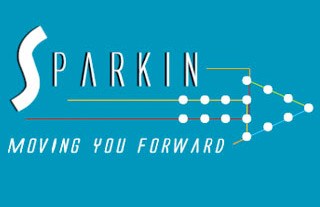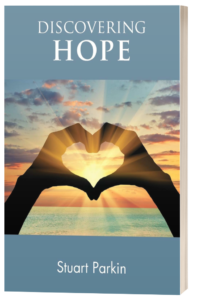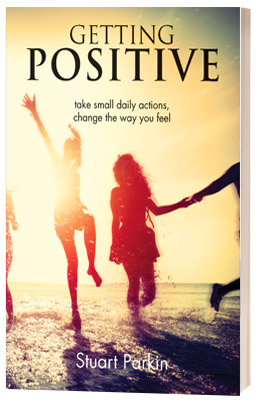The Silver Bullet – Career Planning Advice From Strategists Globally
‘One key piece of advice for your career’ the question I asked leading planners and planning leaders around the globe.
For many fantastic thoughts, read below in the italics.
One key piece of advice I’d add, a drum I constantly come back to, given the constant change in the world and I’m talking pre-‘AI,’ so more true than ever, prepare yourself to be able to adapt.
How/What are the best ways to do this? The subject of the September edition of Narrate.
In the meantime, enjoy the sunshine, get some quality timeout, which by the way, is one way to help fortify yourself against inexorable change.
My best,
Stuart
‘Have a broader sense of market dynamics/the economy etc, which will inform your decision making.’
‘Take a job above and beyond your comfort zone.’
”Follow your heart.’
‘Be present now. Excel in the moment and the future takes care of itself.’
‘Don’t join an agency for a sexy client or because the agency is cool, join because the people are awesome.’The people you are shoulder to shoulder with, your department and your creative colleagues.’
‘People are key. ‘Ask to meet as many of them during the interview process.’
‘Observe the roles of your supervisors and decide what is the way you want to go.’
‘Don’t blindly copy what other planners say or do to feel you’re a real planner. Do things you find interesting rather than just say interesting things you read elsewhere.’
‘Put yourself in the shoes of your boss and your bosses’ boss and ask yourself what you want to do five years from now.’
‘Own both your strengths and your weaknesses. Don’t suppress your vulnerabilities as they will help inform the way you work,’
‘Force yourself to interact with people beyond your own environment and industry.’
‘You’ll never have perfect information so be prepared to take risks.’
‘Create your own kingdom! Infuse your passions and dreams into your future roles or better, create the roles. JD’s are for the sandbox.’
‘Know that there is no one planning style.’
‘Write a 200 word biography of where you intend to be in the future and use it to structure and evaluate all the choices you will make.’
‘Obsess less about the agencies and companies you want to work with and instead focus more about the people you want to work with and learn from.’
‘Find the best practitioners that believe in mentoring and hang on to their coat tails.’
‘Focus more on the journey than the destination. It’s not simply about results.’
‘Be honest with yourself about what brings you joy. When you have joy you will thrive.’
‘Find the part of the job you enjoy most and create a job doing that.’
‘Don’t get caught in the weeds, think what really matters for the business.’
‘You’ll never have perfect information, so be prepared to take risks.’
What else might you add?
All the best,
Stuart
Career Planning for Strategists – The Long Game
I was asked to write about long term career goals and to discuss the options. Truth is there are so many possibilities, there really are! Based on which direction you go, there are certain experiences you need to be getting to make specific options easier to smoothly navigate. We can discuss this.
For instance, if you see yourself eventually moving into general management, getting exposure to operations, finance and team/people management would be key experiences you need to have.
Know Thyself – A big clue to where you ought to end up comes down to understanding what you have enjoyed. Using which skills make you happy? What environments do you thrive in? Ask yourself what outputs have meaning for you.
Where do I want to be in the long term? If you know where you want to be, then you and I can talk about how to get there.
If you have a good sense of self but are unsure about the long term, we can discuss one-to-one; But to maximise the options you can pursue, be it a start-up, platform, publisher, brand, strategic consultancy, strategically focused or otherwise, note key considerations below. But first,
Avoiding Burnout – As much as anything else, the purpose of setting exciting goals is as much to keep you energized in the short and medium term as it is to reaching your nirvana. We all know that a career is a marathon so the question becomes one of ‘pacing.’ You have to sustain your energy, mental/physical/emotional. If you are learning new things and so feel a sense of progression, the hard work is less draining!
Key considerations: (For keeping all options open)
What do I want to experience? If you’re unclear about specific goals, focus at the very least on how you want to feel as a result of your work – The goals often emerge from this understanding.
Differentiate – What do we tell brands to do? To thrive now and in the future, think/reinforce/promote what distinguishable skills you have.
Prioritise Value Creation – Develop expertise that presents a clear path to value creation. (This is ‘not’ simply about ST profit)
Career Variety – Where possible, work in different settings: Agency, client, consultancy, own business/freelance – This enhances your ability to understand and help others.
Business Growth/Consultative Skillset – Develop a prowess with new business and/or organic growth.
Mind of a specialist/heart of a generalist – Our business is reintegrating – Be a polymath of sorts. Think big and detailed.
People – Ours is a business all about people. Help build those around you.
Reputation – Know that it’s all you’ve got.
Profile – Being brilliant but invisible won’t help you.
Results – Applied creativity is key. Be a brilliant strategist but understand a client’s nightmares. Be known for solving problems.
What else might you add?
All the best,
Stuart
Miami Ad School Derek Parkin Empathy Award winner
Many congratulations to Zach Behrmann the newest Derek Parkin ‘Empathy’ Award winner and the recipient of $1500 cash prize and three coaching sessions.
It was great to speak with Zach as well as having sessions with the other students. What a pleasure talking with a group of truly curious individuals.
Congratulations to all the students: Magnus de Pencier, Kumar Derrow, Ian Falcon, Abbidee Fraser, Divesh Mehta, James Murphy, Veronica Pedraza, Phoebe Scherer and Jonanna Ying.
Also, big thanks to all the lecturers: Christopher Owens, Alicia Damiano, Nancy Chang and Craig Sabbatino.
This award was judged through input both with students and the lecturers.
And, thank you also to Manolo Garcia, the fulcrum around which the boot camps happen.
Why this award? At SPARKIN, we would like to see many more empaths in the world.
The ability to work seamlessly and effectively, starts with a determination and ability to effectively understand others. This ’empathetic’ ability is key for effective strategic problem solvers as it is for a functioning society!
Our world could really benefit from folks suspending their beliefs, being truly curious and genuinely trying to put themselves in the shoes of others, believing there’s something to be learnt through every interaction.
#parkinempathyaward #Miamiadschool #careeroptimisation #empathymatters

Strategy Jobs Market Update – June9th, 2023
Strategy hiring Latest June 9th, 2023
‘Functional hiring’ predominates at the moment as opposed to ballsy risk-taking investment of whole teams.
Where the hiring is happening? In replacements for those leaving the business, by agencies that have won business, for clients insisting on a personnel change or, perhaps for a maternity/paternity fill.
Clients are cautious and even AOR work I hear feels more project focused, more performance oriented at the moment. Yes, even clients wants to keep their jobs!
A whole lot of anxiety – It’s palapable – Yellow skies don’t help the sentiment!
Stay positive. For yourself if not for others or better still stay positive through others.
While I’ve always kept my sanity through physical exercize, I’ve increasingly found that the best anditote to anxiety caused by job uncertainty, (and I hear it and feel it via all the conversations I have most days) is to focus on helping/being kind to others.
Being kind? This doesn’t even mean taking up swathes of time in the service of others, but simply being kind when you interact or, being less unkind than you’d typically be!
Do this and you will feel better about yourself and consequently less anxious. Be kind/be who you want to be, and you may also find that the things you want to manifest happen a little faster too:)
Give yourself a break and feel good by being kind.
Adaptability = Career Success (Revisited)
You have great intellect and many would describe you as emotionally very smart, a natural people person.Excellent capabilities to have in a very rapidly morphing business environment. But what’s your AQ like? I’m referring to ‘Adaptability Quotient.’ How capable you are at adapting? How well do you ‘do’ change? Because sooner or later, however good a job you do, ‘change’ is coming our way.
‘A 2020 Harvard Business School survey showed that 71% of 1500 executives from more than 90 countries said that they believed that adaptability was the most important quality they looked for in a leader. And data from a 2021 McKinsey study revealed that people proficient in adapatbility were 24% more likely to be employed.’ (BBC)
What’s your AQ – Try a short test.
In 2018 I wrote about the importance of adaptability for your career success. (See below.) At the time there appeared to be a big discrepancy between how employers and employees viewed its importance, 91% and 53% respectively. But no more.
While most of you would be prepared to change, many struggle with it. So what makes us good dealing with change, all other factors being constant, I’ll suggest a few:
1. Your level of optimism. If you’re optimistic you’re more likely to believe there’s a solution – Expect to be tested for your ‘OC’ or Optimism Quotient very soon!
2. Life experience – The more changes you’ve already experienced, the better able you are to manage new change. e.g.Meditation
3. Coping mechanisms – Which help you deal with stress/help keep a clear mind to best deal with the change.
4. Support network – This could be within or outside work.
5. Organisational skills – No doubt about it, the better organised someone is, the more able they are to multi-task if not outright change what they are doing.
What else would you include?
All the best,
Stuart
Identifing an Employer Who Values Strategy/Planning
When you’re in demand, you might be told things that don’t entirely resemble the reality of the culture or the work/It’s not always straightforward knowing whether a would-be employer, truly values what you do.
Below are some questions (open-ended typically provide more information for you) that I’m sure many of you ask, but there might be one or two that you don’t, that could get the clarity you need.
Q’s about department size/growth/effectiveness
What is the ratio of strategists to employees?What has been the principal cause of the growth of the function (strong leader, client demand, other)Does the business enter/and or win effectiveness awards?
Q’s about the seriousness with which strategy is taken.What role does the CSO play as part of the leadership team?How does the CSO or other department head, advocate for planning?Q’s about training/development What off-the-job training is offered to strategists in addition to on-the-job training?How is mentoring carried out for strategists?
Q’s about work process Is there an ECD sign-off for a brief/Is strategy a core part of getting to great creative work
Q’s about agency outputs and the role of strategy to deliver themWhat types of pure strategy projects do clients request?Can you provide examples of the types of projects clients request? Typically how long are these engagements?
Q’s about business development and the role of strategyHow involved are strategists in the process of pursuing new clients?
Q’s about clients/How they value strategyDo clients request strategy or is this something the agency insists on as part of its process?Are there any clients requesting not to have strategic input? If so, why?What do clients see as the role of strategists?
Q’s about creative outputHas most if not all work that has won creative awards been based on strategic input?And a few others:What are the biggest challenge for strategic work here?How many strategists have worked on this account in the last year?/Since the agency had the account?What is the turnover rate for strategists here/For the agency in general?
What other questions would you ask to know whether the job on offer was a career-defining one for a strategist?
All the best,Stuart







